Results
-
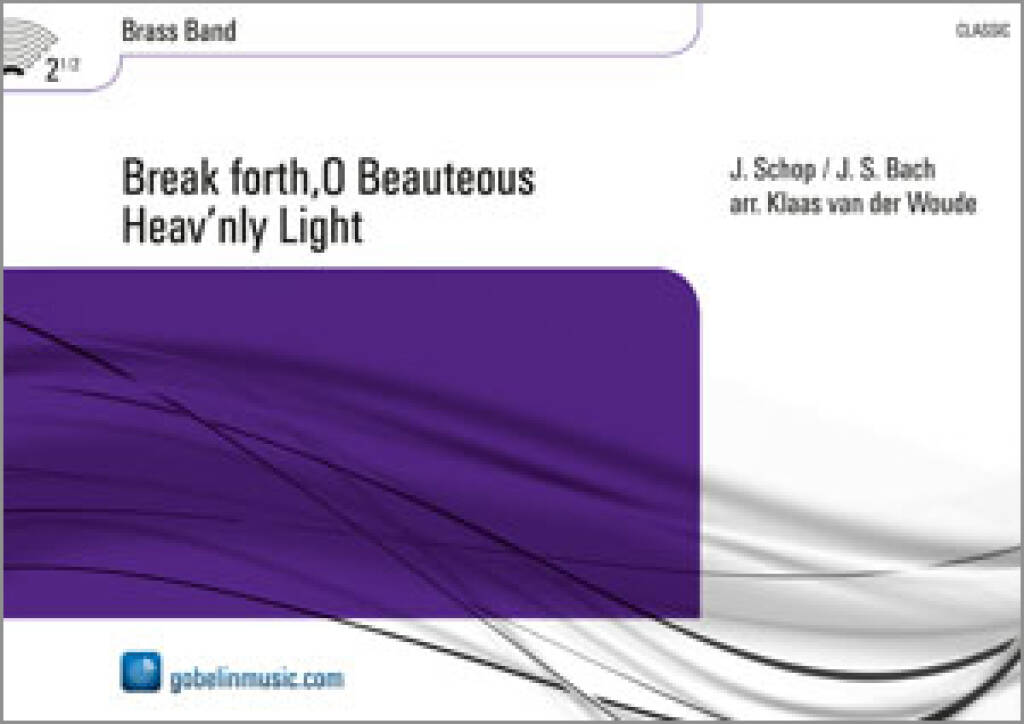 £60.99
£60.99Break forth,O Beauteous Heav'nly Light - Johann Schop - Klaas van der Woude
Words: Johann Rist, Himmlische Lieder (Leipzig, Germany: 1641) (Ermuntre dich, mein schwacher Geist). translated from German to English by John Troutbeck, circa 1885.
Estimated dispatch 5-14 working days
-
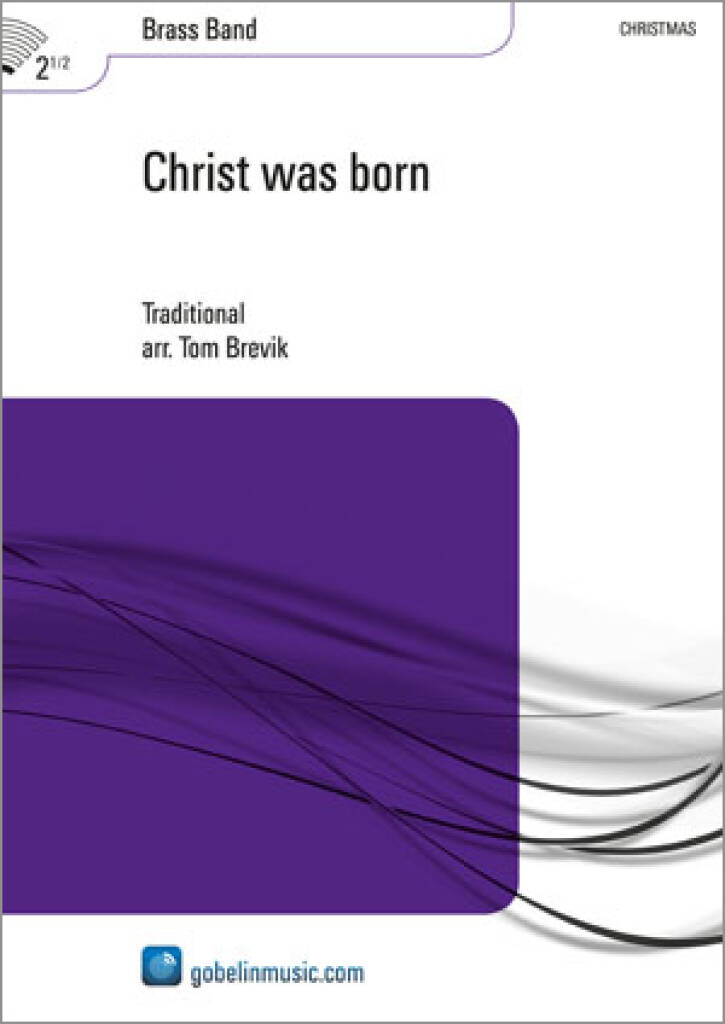 £76.99
£76.99Christ was born - Tom Brevik
Norwegian traditional, arranged by Tom Brevik for cornet soloist and brass band.
Estimated dispatch 5-14 working days
-
£89.99
Elegy and March - Torstein Aagaard-Nilsen
Commissioned by the Norwegian Band Federation and Tom Brevik. Composed in 1991. The composer:Elegy and March was one of my first original compositions (no quotations, no folk-tunes) and it was one of my earliest attempts to experiment with form. The elegy-part is quite obvious, but the march is not quite a march. If the elegy-part tells a sad story, then the march should tell a happy story. My problem is that I don?t think life is like that. Result: the march collapses! De liefhebbers van de muziek van de Scandinavier Aagaard-Nilsen kunnen hun hart ophalen bij dit bijzondere werk. In de tweedelige compositie zijn de delen thematisch aan elkaarverwant. De Elegy is een verstild werkje met prachtige klankvelden. Alle instrumenten komen aan bod maar nooit tegelijk. Hoe anders is dat in de mars waarbij ragfijn orkestspel wordt gevraagd. De componist: Elegy and March was een van mijn eerste originele werken (geen citaten, geen volksliedjes) en het was een van mijn eerste pogingen om te experimenteren met vorm. De elegie deel is vrij duidelijk, maar de mars is niet helemaal een mars. Als het elegie-deel een triest verhaal vertelt, dan zou de mars een gelukkig verhaal moeten vertellen. Mijn idee is dat dat in het echte leven ook niet zo is. Resultaat: de mars stort totaal in!Weer iets totaal anders van de Noorse meester!
Estimated dispatch 5-14 working days
-
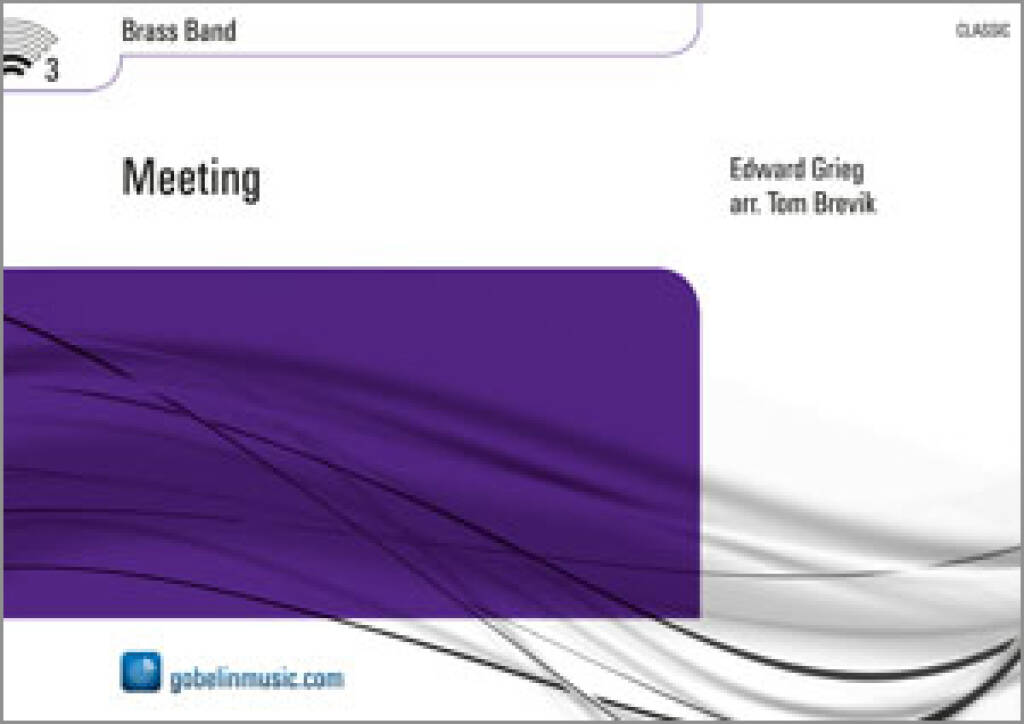 £69.99
£69.99Meeting - Edvard Grieg - Tom Brevik
A lyrical piece, from Edvard Grieg's song-cycle "Haugtussa" ( The Mountain Maid) originally for voice and piano, but here in an arrangement for Soprano Cornet and Brassband by Tom Brevik Een lyrische werk van Edvard Grieg uit de liederencyclus ""Haugtussa"" (The Mountain Maid),oorspronkelijk voor stem en piano, maar hier in een arrangement voor Es Cornet en Brassband van Tom Brevik.
Estimated dispatch 5-14 working days
-
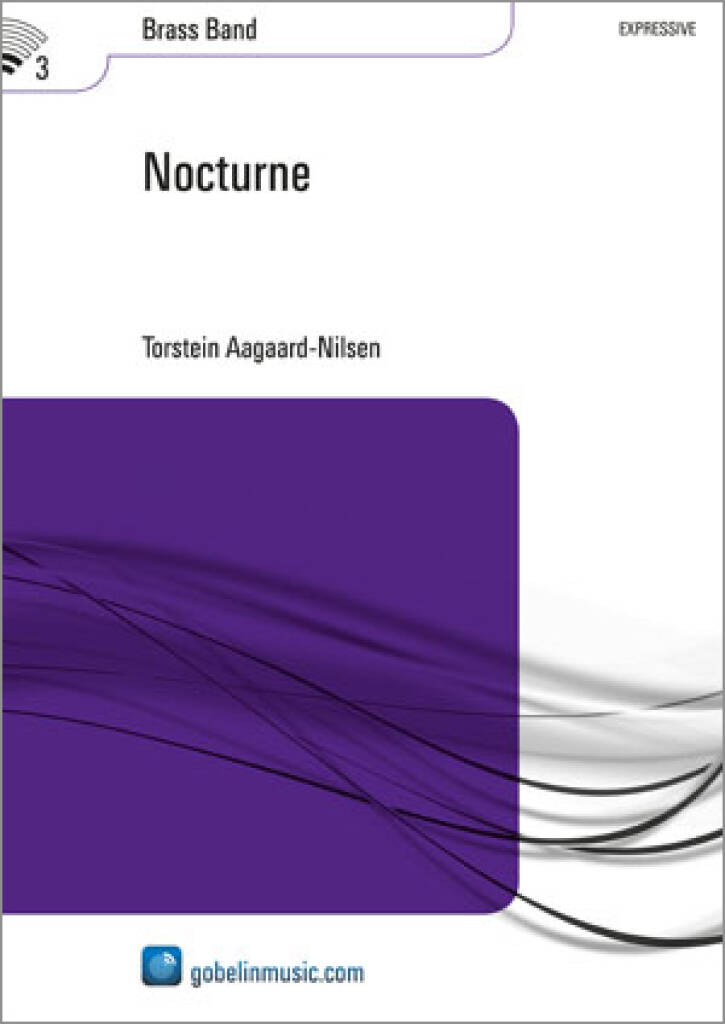 £69.99
£69.99Nocturne - Torstein Aagaard-Nilsen
Commissioned by Manger School Band and their conductor (at that time) Bj?rn Sagstad in 1990. He wanted a calm, slow piece of music. Nocturne means 'night music'. It does not reflect a particular dream, but the feeling you get when you?re day-dreaming: you are in the middle of beeing awake and asleep. Geschreven in opdracht van Manger School Band en hun dirigent (op dat moment) Bj?rn Sagstad in 1990. Hij wilde een rustig, langzaam stuk muziek. Nocturne betekent 'nacht muziek'. Het gaat dus niet een bepaalde droom, maar het gevoel dat je krijgt wanneer je aan het dagdromen bent: je bent in het midden van wakker zijn en slapen.
Estimated dispatch 5-14 working days
-
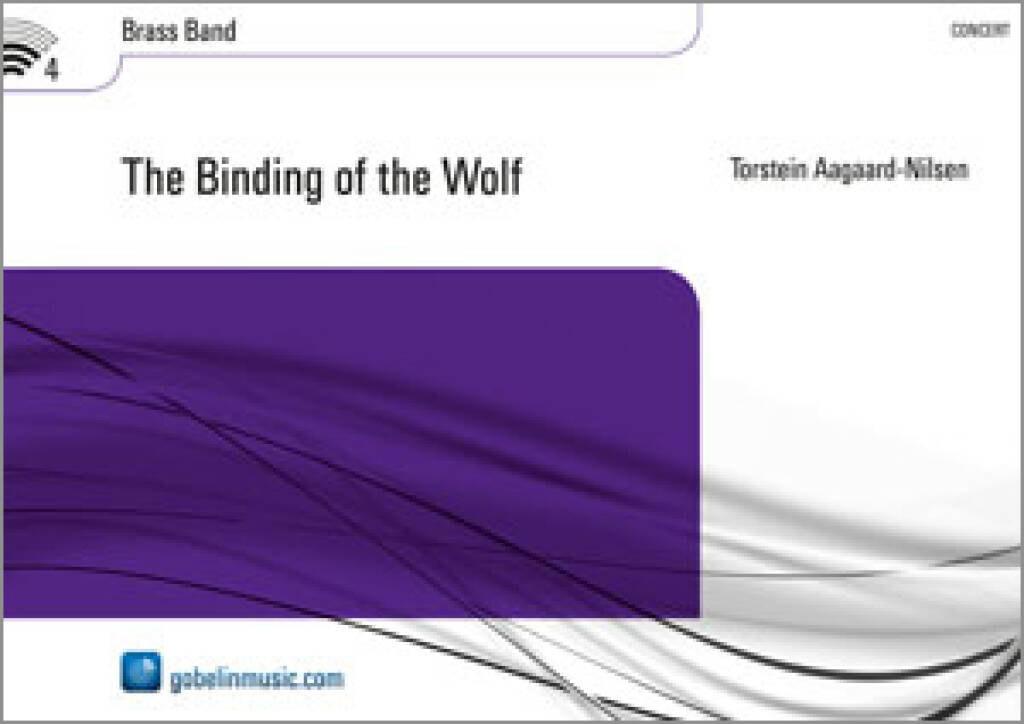 £119.99
£119.99The Binding of the Wolf - Torstein Aagaard-Nilsen
This piece was commissioned by Nordhordland Brass Seminar in 1990 and written for a youth band. The title referes to a story from norse mythology. "The Binding of the Wolf" is not a programmatic piece of music, but I felt that there was a kind of coherence between the music and the dramatic story: "...The wolf Fenrir was one of the demonic offspring of Loki, and as he grew up in Asgard among the gods, he became so huge and fierce that only Tyr was willing to feed him. It was decided that he must be bound, and Odin in his wisdom caused the cunning dwarfs to forge a chain which could not be broken. It was made from the invisible and yet potent powers ofthe world, such as the roots of a mountain, the noise of a moving cat, the breath of a fish. When completed, this chain seemed to be no more than a silken cord, but the wolf refused to let it be laid upon him unless one of the gods would put a hand between his jaws as a pledge that it was harmless. Only Tyr was prepared to do this, and when the wolf found that the chain was unbreakable, the gods rejoiced, but Tyr lost his hand. The binding of the wolf may be seen as a means of protecting the world of men, as well as that of the gods, from destruction. The story of the god losing his hand appears to be one of the fundamental myths of nothern Europe..."
Estimated dispatch 5-14 working days
-
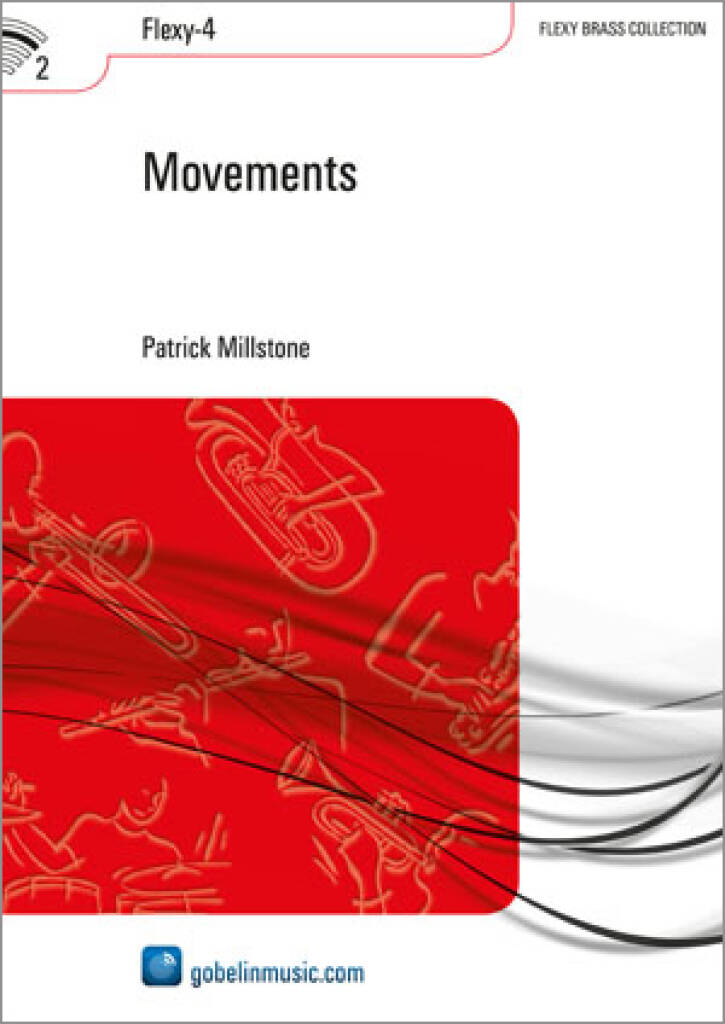 £60.99
£60.99Movements - Patrick Millstone
The three sections of Movements demonstrate the concept of motion in all its orms. The March briskly gets the band going (in motion). section 2 (Sarabande) is solemn and melodious (slow motion), and the Allegro con Brio in section 3 forms an energetic conclusion (commotion) to this enchanting and instructive composition by Patrick Millstone.
Estimated dispatch 5-14 working days
-
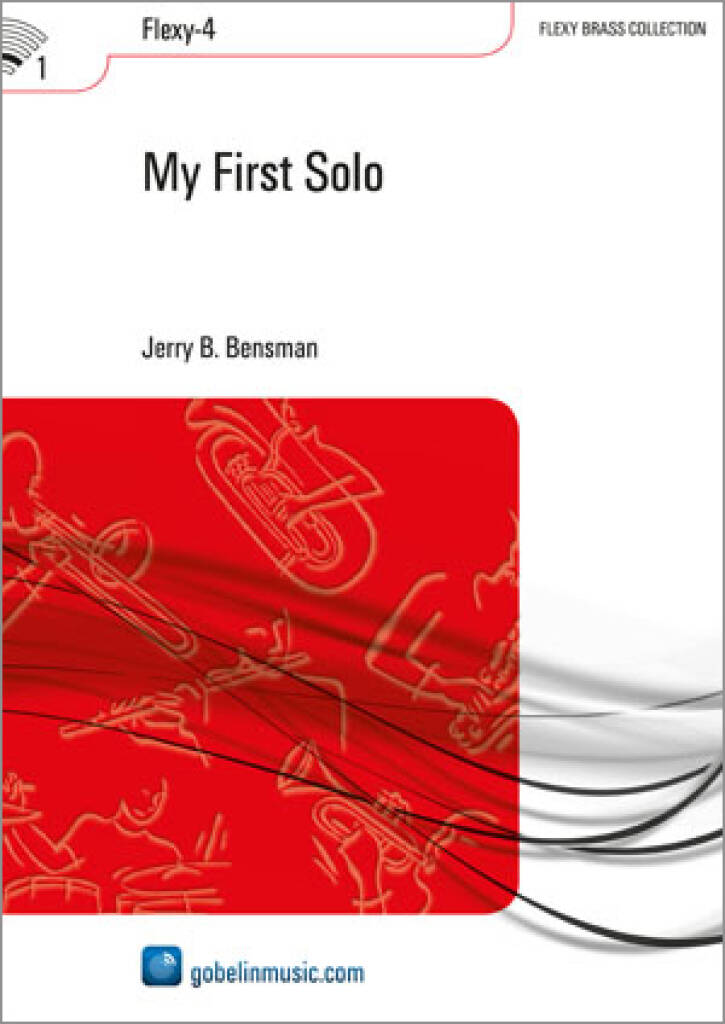 £54.99
£54.99My First Solo - Jerry B. Bensman
You only have had a couple of months of lessons and already you are to play a solo at your band's annual gala concert. in a big concerthall, on a huge platform and in front of people from your own town or village. Now there's something ! This circumstance inspired Jerry Bensman into writing your very first solo piece with band accompaniment. The solo part may be played by various instruments and was kept very simple indeed. Parts are available in various transpositions and keys.
Estimated dispatch 5-14 working days
-
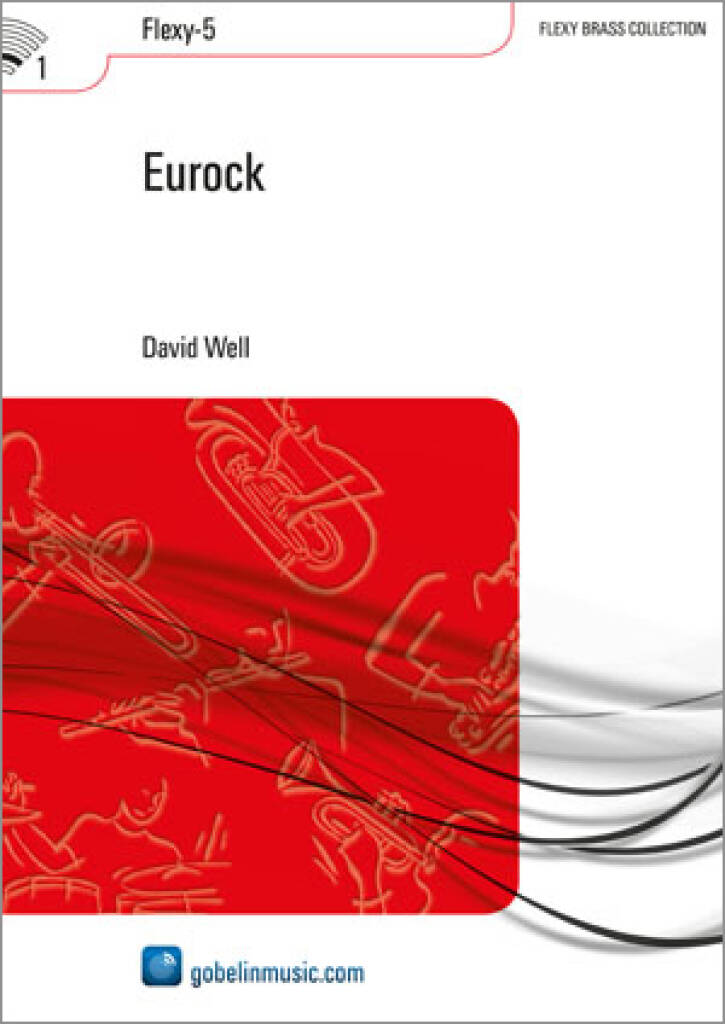 £54.99
£54.99Eurock - David Well
Eurock is the gripping title of the five-part rock composition, written by David Well.
Estimated dispatch 5-14 working days
-
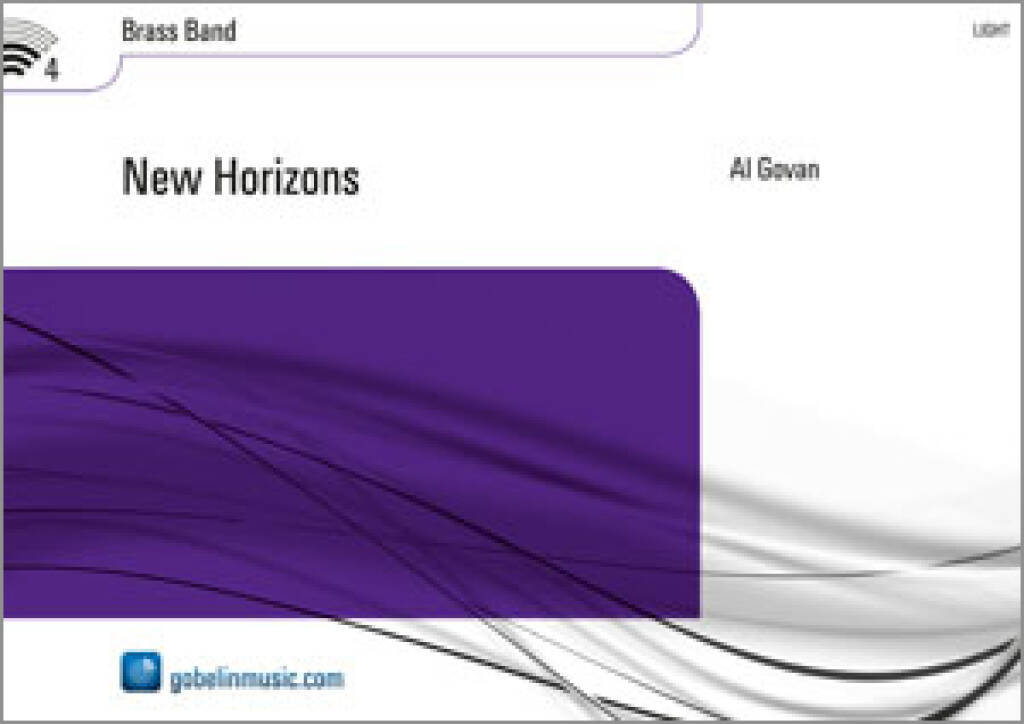 £76.99
£76.99New Horizons - Al Govan
An attractive journey piece written to be played by youth bands which features the percussion section. Een aantrekkelijk werk, met de hoofdrol voor de slagwerksectie!
Estimated dispatch 5-14 working days
